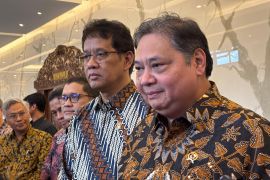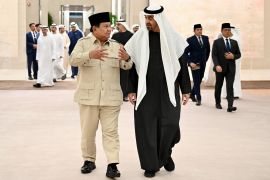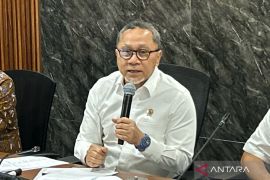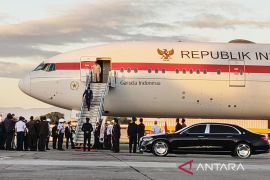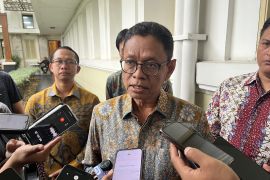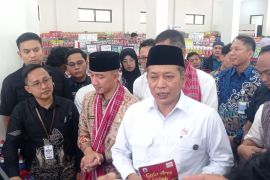"In general, Indonesia`s position is relatively strong and it is ready to face the short-term market turmoil, at least until the end of 2017," Wahyoe Soedarmono said.Jakarta (ANTARA News) - Indonesias economy is strong enough to face the challenges to the global economy likely to emanate from Donald Trumps policies, an academician and economic analyst has said.
"I do not see any reason to be concerned because our consumption still accounts for 56 percent of our total output," Wahyoe Soedarmono, who is also the chairman of the study management program of the University of Indonesia (UI), said here on Monday.
He made the remark after attending an expose on Indonesias economy 2017 entitled: Waiting for the Daybreak in the New Global Economic Equilibrium," organized by Sampoerna.
In the third quarter of 2016, Indonesias current account deficit of 1.8 percent of gross domestic product (GDP) is seen as adequately good. This could minimize the negative sentiment against Indonesias economy, and result in lower capital outflows.
The capital outflow in mid-November, or when Donald Trump was elected president, reached Rp16 trillion. Yet, the effect of the capital outflow is far smaller on Indonesia compared with Thailand, India, Taiwan or South Korea, Wahyoe said.
Pressures in Indonesia that could cause the depreciation of the rupiah could be reduced through an increase in state revenue from the tax amnesty program.
The assets declared under the program have reached a redemption value of Rp98.7 trillion, and repatriation funds are worth Rp143 trillion. The funds will be entering Indonesia until the end of the year (2016).
The budget cut and not-too-high exports to the United States are also supporting factors for Indonesias economy in the face of the fiscal policy and the economic policies of the incoming Trump administration.
"In general, Indonesias position is relatively strong and it is ready to face the short-term market turmoil, at least until the end of 2017," he said.
However, Indonesia should watch the planned increase of the benchmark rate by the United States Federal Reserve at the end of 2016 and the whole of 2017. There are a number of policy choices such as expenditure-switching policy and increase of Bank Indonesias (BI) reference rates.
Meanwhile, the International Monetary Fund (IMF) has predicted that the Indonesian economy will grow at 5.1 percent next year, mostly fueled by high consumption and private investment.
"The growth will follow a recovery in commodity prices, and a lower lending rate in 2017," IMF Executive Council Luis E Breuer said in a press statement released last month (November 25).
The IMF also predicted that Indonesias economy will expand by 5.0 percent this year, propelled by high private consumption.
The countrys inflation rate in 2016 is projected to reach 3.3 percent year-on-year and increase to the mid-range of 3-5 percent in 2017 due to the revised electricity subsidy target, he added.
"The current account deficit is projected to increase from 2 percent of the gross domestic product in 2016 to 2.3 percent next year due to an increase in fixed investment and imports," Breuer stated.
The IMF praised the good economic conditions in Indonesia as of November-end 2016, driven by a mixture of proper and prudent macro-economic policy and structural economic reforms.
"The authority (in Indonesia) is capable of directing its economy to steer it through the various dynamics in the global economy," he underlined.
The IMF supports the governments steps to improve the country's fiscal structure by slashing the budget in proportion with state revenue.
The way in which the government has expanded state revenue sources to spur economic growth has helped induce a sense of stability as it has managed to prevent the deficit from exceeding 3 percent of GDP, the IMF noted.(*)
Editor: Heru Purwanto
Copyright © ANTARA 2016

